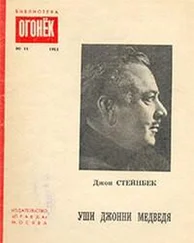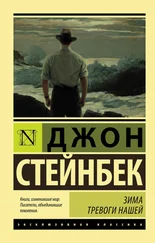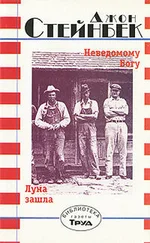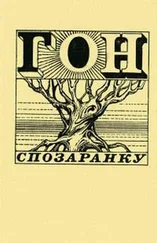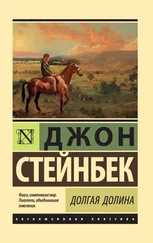Джон Стейнбек - Cup of Gold [Золотая чаша]
Здесь есть возможность читать онлайн «Джон Стейнбек - Cup of Gold [Золотая чаша]» — ознакомительный отрывок электронной книги совершенно бесплатно, а после прочтения отрывка купить полную версию. В некоторых случаях можно слушать аудио, скачать через торрент в формате fb2 и присутствует краткое содержание. Год выпуска: 1929, Жанр: Прочие приключения, на английском языке. Описание произведения, (предисловие) а так же отзывы посетителей доступны на портале библиотеки ЛибКат.
- Название:Cup of Gold [Золотая чаша]
- Автор:
- Жанр:
- Год:1929
- ISBN:нет данных
- Рейтинг книги:5 / 5. Голосов: 1
-
Избранное:Добавить в избранное
- Отзывы:
-
Ваша оценка:
- 100
- 1
- 2
- 3
- 4
- 5
Cup of Gold [Золотая чаша]: краткое содержание, описание и аннотация
Предлагаем к чтению аннотацию, описание, краткое содержание или предисловие (зависит от того, что написал сам автор книги «Cup of Gold [Золотая чаша]»). Если вы не нашли необходимую информацию о книге — напишите в комментариях, мы постараемся отыскать её.
Cup of Gold [Золотая чаша] — читать онлайн ознакомительный отрывок
Ниже представлен текст книги, разбитый по страницам. Система сохранения места последней прочитанной страницы, позволяет с удобством читать онлайн бесплатно книгу «Cup of Gold [Золотая чаша]», без необходимости каждый раз заново искать на чём Вы остановились. Поставьте закладку, и сможете в любой момент перейти на страницу, на которой закончили чтение.
Интервал:
Закладка:
"You see, Mother," Robert went on, "you are something like Henry yourself, for you never admit the existence of any idea save your own. But I will not forbid his going, because I must not have him stealing out into the lonely dark with bread and cheese under his coat and a hurt feeling of injustice in his heart. I permit him to go. More, I help him to go if he wishes it. And then, if I have misjudged my son, he will come sneaking back with the fearful hope that no one may mention his cowardice."
Mother Morgan said, "Nonsense!" and went back to her work. She would dissolve this thing by disbelieving it. Oh, the thousand things she chained to Limbo with her incredulity!
For many years she had beaten Robert's wild thoughts with a heavy phalanx of common sense; her troop simply charged in and overwhelmed him. Always he retired wearily and sat smiling for a time. He was sure to come back to sanity in this case as in others.
Robert was working the soil about the roots of a rose bush with his strong brown hands. His fingers lifted the black loam and then patted it gently back into place. Now and again he stroked the gray trunk of the bush with the touch of great love. It was as though he smoothed the covers over one about to sleep and touched its arm to be reassured of its safety.
The day was light, for winter had inched back a bit and returned its hostage to the world-a small, cold sun. Young Henry came and stood near an elm by the wall, a tree draggled and leafless and gaunt with nursing the winds.
"You have been thinking as I asked you?" Robert spoke quietly.
Henry started. He did not know that the man, kneeling as though in adoration of the earth, had noticed him; and yet he had come here to be noticed.
"Yes, father," he said. "How could I help be thinking?"
"And has it bound you here? Will you be staying?"
"No, father I may not stay." He had been made sad with his father's sadness. He felt mean and shoddy to be the cause of it, but the hunger to be going still gnawed in his heart.
"Will you be walking up to speak with Merlin on the Crag-top, then?" Robert pleaded. "Will you listen to his words with great care?"
"I shall go now."
"But, Henry, the day is half done with, and the track is long. Be waiting until the morrow."
"I must be away the morrow, father."
Old Robert's hands slipped away slowly to the ground and lay, half-open, on the black soil at the roots of the rose bush.
Young Henry turned soon from the road to climb up a broad trail which soared to Crag-top and then over the wild mountains. Its windings could be seen from below until it disappeared into the great deft.
And on the topmost point of the trail dwelt Merlin; Merlin whom the farm boys might have jeered at and stoned on his infrequent journeys down the path had they believed him harmless. But Merlin was one who collected about himself a swarm of little legends. It was established that the Tylwyth Teg obeyed him and carried his messages through the air on soundless wings. Children whispered of his acquaintance with certain mottled weasels which might carry on his vengeance had he need of such. Then, too, he kept a red-eared dog. These were terrific things, and Merlin one not to be trifled with by children who did not know all the signs for protecting themselves.
Once Merlin had been a fine poet, the old people said, and might have been a greater. They would softly sing "The Sorrow of Plaith" or "The Spear Song," to prove it. Several times he had taken the chief prize of the Eisteddfod, and would have been chosen First Bard if an aspirant of the House of Rhys had not entered against him. Then, without known cause, and Merlin a young man, too, he had shut up his song in the stone house on Crag-top and kept it a strict prisoner there while he grew old and old-and those who had sung his songs forgot them, or died.
The Crag-top house was round like a low gray tower with windows letting sight on the valley and on the mountains.
Some said that it was built by a beleaguered giant, centuries ago, to keep his virgins hidden while they were in that state; and others, that King Harold had fled there after Hastings to live out his life ever watching and peering, with his one eye, down the valley and over the mountains for the coming of Normans.
Merlin was old now; his hair and long, straight beard were white and soft as spring clouds. There was much about him of an ancient Druid priest with clear, far-seeing eyes which watched the stars.
The pathway narrowed on young Henry as he climbed.
Its inward side was a stone wall cutting into the heavens knife-like, and the misshapen, vague images along the way made it seem the rock temple of some old, crude god whose worshipers were apes.
There had been grass at first, and bushes, and a few brave, twisted trees; but upward all living things died of the rock loneliness. Far below, the farmhouses huddled like feeding bugs and the valley shrank and drew into itself.
Now a mountain closed in on the other side of the trail, leaving only a broad chasm to the sky. A fierce, steady wind poured out of the blue heavens and shrilled toward the valley. Upward, the strewn rocks were larger and more black and dreadful-crouched guardian things of the path.
Henry climbed tirelessly on. What could old Merlin have to tell him, or, perhaps, to give him? A lotion to make his skin tough and proof against arrows? Some charm? Words to protect him from the Devil's many little servants? But Merlin was to talk and he to listen; and what Merlin said might cure young Henry of his yearnings, might keep him here in Cambria for always. That could not be, for there were outland forces, nameless foreign ghosts, calling to him and beckoning from across the mysterious sea.
There was no desire in him for a state or a condition, no picture in his mind of the thing to be when he had followed his longing; but only a burning and a will overpowering to journey outward and outward after the earliest risen star.
The path broke on a top of solid stone, semispherical like the crown of a hat; and on thepeak of its rise was the low, round house of Merlin, all fitted of irregular rough rocks, and a conical roof on it like a candle-snuffer.
The old man met him at the door before he could knock.
"I'm young Henry Morgan, sir, and I'm going outward from here to the Indies."
"Indeed, and are you? Will you come in and talk to me about it?" The voice was clear and low and lovely as a young wind crooning in a spring-time orchard. There was the music of singing in it, the quiet singing of a man working with tools; and underneath, half-heard or completely imagined, there rang the seeming of harp strings lightly touched and left to thrill.
The single room was thick carpeted in black, and on the walls were hung harp and spear-head, harp and spear-head all the way around; small Welsh harps and the great bronze leaf spears of the Britons, and these against the unfinished stone. Below these were the all-seeing windows wherefrom you might look out on three valleys and a mighty family of mountains; and lower still, a single bench circled around the room against the wall. There was a table in the center loaded with tattered books, and beside it a copper brazier, set on a Greek tripod of black iron.
The great hound nuzzled Henry as he entered so that he drew away in fright, for is there anything under the blue cup so deadly as the merest notice of a red-eared dog?
"You are going to the Indies. Sit here, boy. See! You can watch your home valley now, so that it go not flying off Avalon." The harps caught up his tones and hummed an answering faint resonance.
"My father said I was to come here and tell you of my going and listen to your speech. My father Thinks your speech may keep me here."
"Going to the Indies," Merlin repeated. "Will you be seeing Elizabeth before you go and making grand promises to flutter the heart of her and strangle the breath in her, after you're gone, from thinking of the things you will bring back to her?"
Читать дальшеИнтервал:
Закладка:
Похожие книги на «Cup of Gold [Золотая чаша]»
Представляем Вашему вниманию похожие книги на «Cup of Gold [Золотая чаша]» списком для выбора. Мы отобрали схожую по названию и смыслу литературу в надежде предоставить читателям больше вариантов отыскать новые, интересные, ещё непрочитанные произведения.
Обсуждение, отзывы о книге «Cup of Gold [Золотая чаша]» и просто собственные мнения читателей. Оставьте ваши комментарии, напишите, что Вы думаете о произведении, его смысле или главных героях. Укажите что конкретно понравилось, а что нет, и почему Вы так считаете.
![Джон Стейнбек Cup of Gold [Золотая чаша] обложка книги](/books/181372/dzhon-stejnbek-cup-of-gold-zolotaya-chasha-cover.webp)
